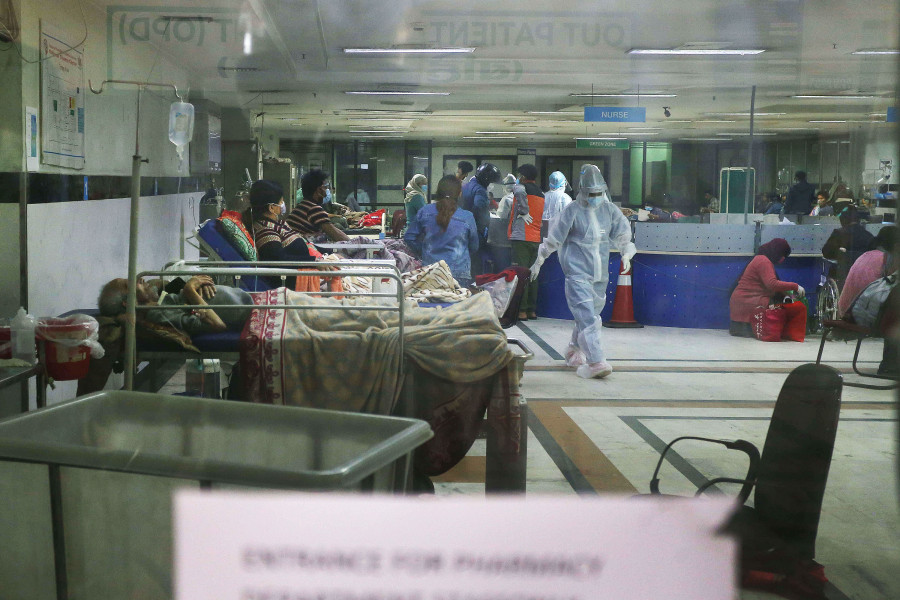Editorial
Shambolic management
Official ineptitude cost too many lives during the second wave. We cannot let a repeat show happen.
The Auditor General’s Office released its 58th annual report on August 19, detailing anomalies in the management of Covid-19 by the KP Sharma Oli government. The report entitled "Special Audit Report on Covid-19 Management" categorically points out several shortcomings—in managing quarantine centres, in managing the flow of people in and out of the country, and in procuring medical equipment. People had to bear the brunt of the shambolic management in April and May this year at the peak of the second wave, which wreaked havoc in the country. People running from pillar to post to secure oxygen cylinders and hospital beds were a common sight. And the medical fraternity's decrying the government’s nonchalant take on the shortages of equipment fell on deaf ears. The government’s action seems reactionary at best, only working to provide lip service to the needs and concerns of the people.
It has been over 18 months since Covid-19 was first detected in Nepal, yet we see no concerted efforts by those at the helm to tackle the problem or even recognise its seriousness. For the most part, the Oli government spent its days downplaying the gravity of the matter, and issuing remedies that lacked irrefutable medical evidence. And, as we ominously slip in and out of the Covid-19 waves, the current government, led by Prime Minister Sher Bahadur Deuba, seems to be sleepwalking down the same path without a sense of urgency in tackling issues related to the pandemic.
The government's effort to purchase supplies was slow, to begin with. The purchase order for essential medical gear such as personal protective equipment (PPEs), protective goggles and testing kits were awarded to the now blacklisted Omni Business Corporate. Despite quoting significantly higher estimates than the Department of Health’s own estimate—13.9 percent higher than other prospective suppliers as per the report—Omni Business still managed to bag the lucrative contract. Although the government rescinded the contract with Omni Business in April 2020, the report states that it overlooked a severe breach in forming the procurement committee. Does the question remain as to why it was awarded the contract in the first place?
For example, a pair of goggles with a market rate of Rs360 was supplied to the government for no less than Rs2,182 (a mark-up of an eye-watering 500 percent). Such anomalies can also be seen in the procurement of gowns, PPEs, masks and boots essential to the medical fraternity in the provision of their services.
Similarly, there was severe lack of coordination between the federal, provincial and local governments in managing quarantine centres along the southern border points, which saw a huge movement of people. The authorities turn a blind eye when people go missing from these centres. In fact, there seems to be tacit approval by the authorities, often citing lack of funds and basic equipment to run quarantine centres effectively.
So what now? The government’s attention seems to be mired in petty politics, still unable to break the political deadlock. There is a lack of bold vision on the part of successive governments, and the responses have so far been reactive and inadequate. More importantly, there seems to be a lack of political will to solve the crisis. If we are to come out of this mess, the authorities who seem composed and unruffled by it should spring into action right away. We cannot sit back and be consumed by another wave in the offing, mainly due the ineptitude of the government.




 13.12°C Kathmandu
13.12°C Kathmandu














